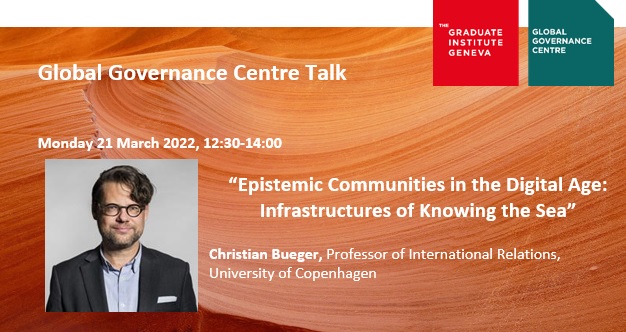On May 4th I am giving a guest lecture at the Department of Political Science at the University of Bologna. In the lecture I will review the European Union’s approach to maritime security based on a forthcoming paper co-authored with Tim Edmunds. The paper draws on our research on maritime security strategy as well as a talk on the EU’s maritime security strategy I gave last year at the EU Military Committee. Further information and location here.
Author Archives: admin
Maritime Security in Ghana. The next steps
On April 29th we hosted a gathering of the maritime security community in Ghana to discuss the findings from our AMARIS research project. The summary of the event, written by Felix Mallin and I, is now available here.
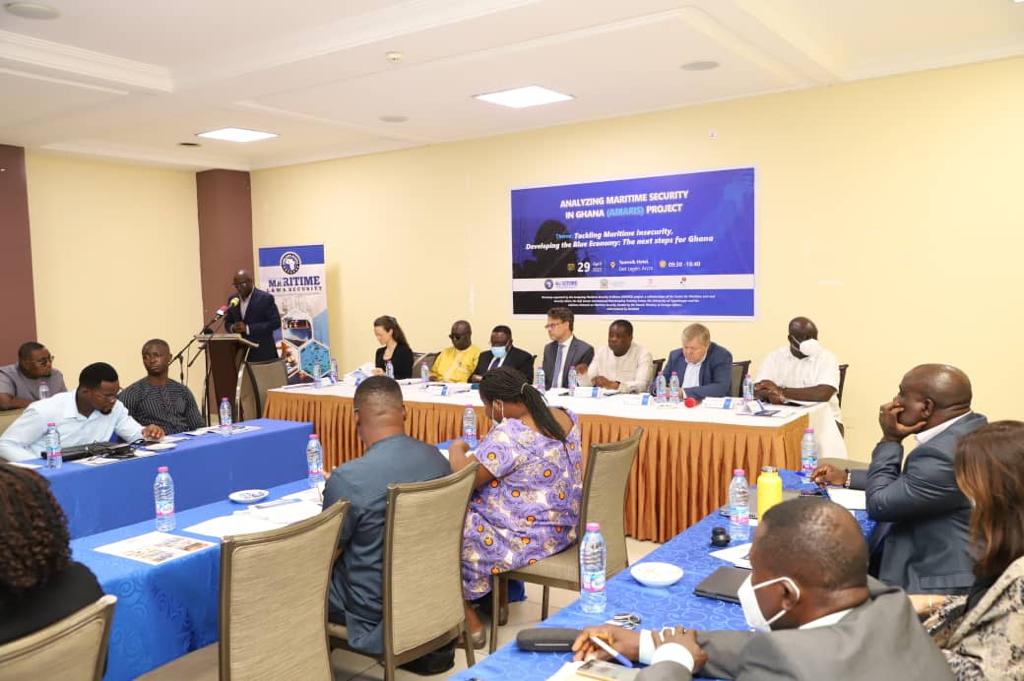
How to improve maritime security in the Gulf of Guinea
On April 27 and 28 two key events of our collective research project AMARIS (Analyzing Maritime Security in Ghana) will take place in Accra. On day one we will have an internal meeting and review the set of current drafts for academic articles and how to drive them to publication. Papers, include a discussion of the problem of inter-agency coordination, the effect of maritime security strategies and on the impact that the concept of maritime security had for governance and organization of the maritime sector in Ghana.
On day two, the AMARIS team will present our key policy insights to the major stakeholders and agencies in Ghana. We will investigate how the maritime threat landscape has been evolving, what the key hurdles are in creating effective maritime security governance, and what best practices can ensure the effective delivery of capacity building. The event is hosted by the Center for Maritime Law and Security Africa one of the member institutions of AMARIS.
Recording of presentation on cable security at European Parliament
The recording of our recent presentation at the Sub-Committe on Security and Defense of the European Parliament is now available to view. In the presentation we discuss how the security of the European subsea data cable infrastructure — critical for the European digital economy. The recording is available here.
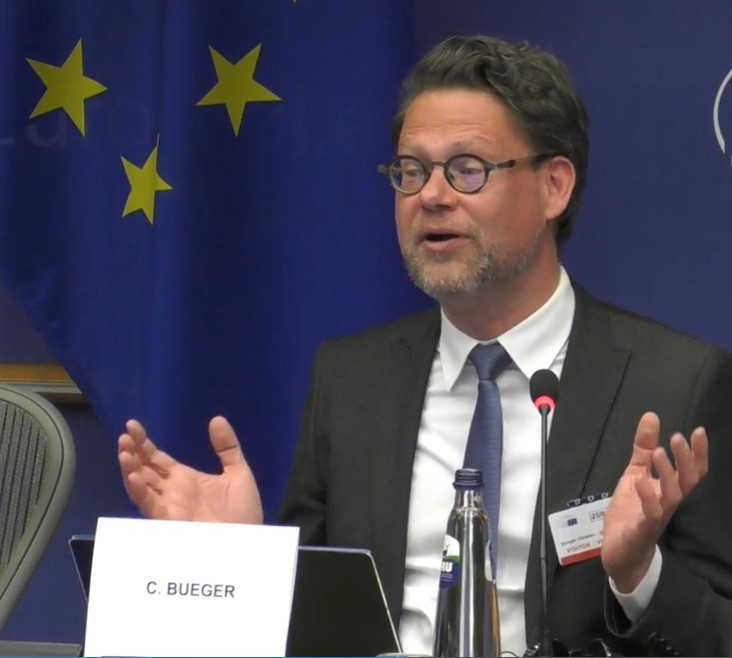
Presentations at EU in Brussels
From the 25 to 26th of April, Tobias Liebetrau and I will be visiting Brussels to present the key recommendations of our recently completed study on the security of subsea data cable infrastructures in Europe. We will be giving a presentation to the Security and Defense Committee of the European Parliament that commissioned the study.
We will also meet with the team from DG Mare and the External Action service that is drafting the update of the EU Maritime Security Strategy. We will present the results of the study on cables and also the key take away points of another forthcoming study on the EU’s maritime security policy (with Tim Edmunds).
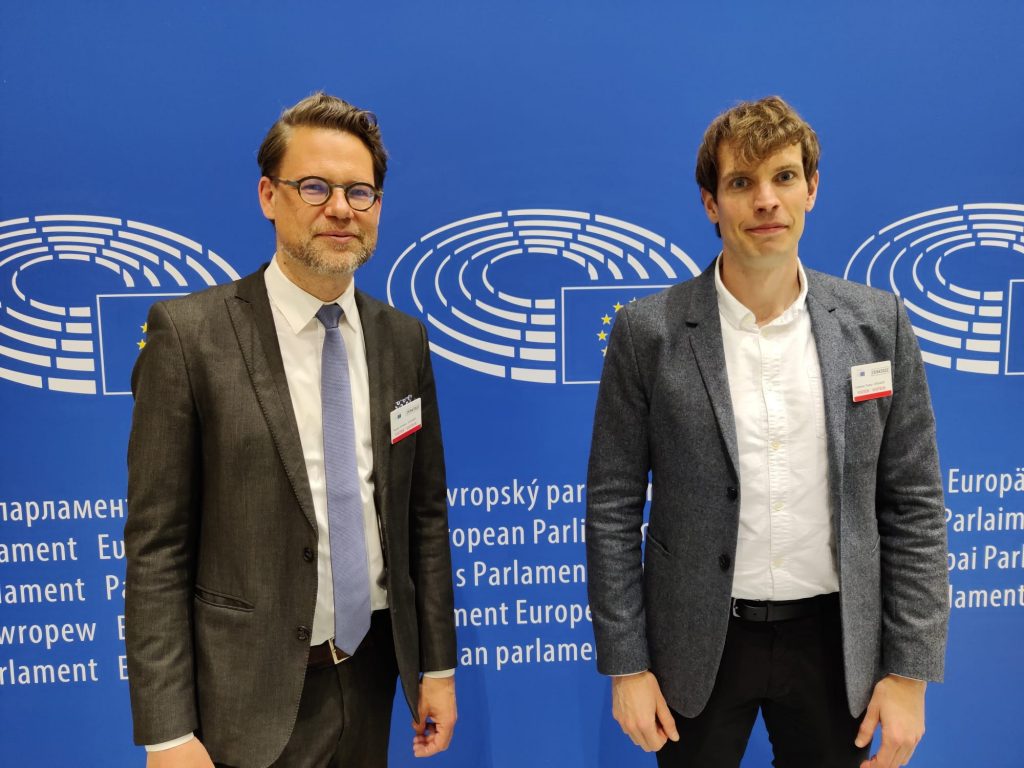
EU – India Seminar on Maritime Security
The Indian National Maritime Foundation and the EU project ESIWA (Enhancing Security Cooperation In and With Asia) held an online EU-India seminar on maritime security and UNCLOS on April 11th. The key question addressed was how India and the EU can cooperate better to provide maritime security in the Indo-Pacific. I had the pleasure to chair the second session of the event.
New study on maritime security in the Western Indian Ocean
Together with Jan Stockbruegger I have conducted a review of the current security situation in the Western Indian Ocean. We show which insecurities are on the rise and argue that the rise of geopolitical concerns increasingly produces a militarization dilemma: foreign naval forces are needed to address insecurity on the one hand, but they might become a source of insecurity in their own right due to growing tensions on the other. We discuss if and how the current security architecture can cope with the problems, pointing in particular to SHADE and the Contact Group. The study is now available with African Security Review as online first.
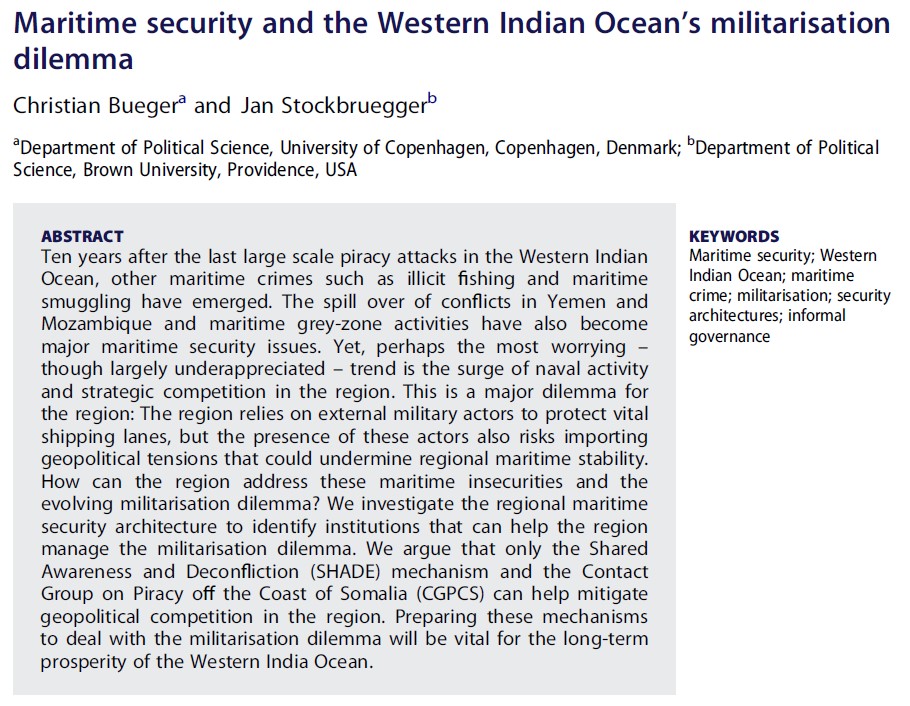
Webinar on ‘Fish Wars and Blue Conflicts’
What is the relation of fish and security? On the 6th of April I had the pleasure to contribute as a discussant to a webinar that explored that important question. The event was organized by the Institute for Oceans and Fisheries of the University of British Columbia.
Conference of the International Studies Association
From 28th to the 2nd of April I will be attending the annual conference of the International Studies Association, which is the major conference in the field of International Relations. This year the conference will be held in a hybrid format with a physical component in Nashville, U.S. and I will be attending in person.
I am involved in a range of panels as chair, presenter and discussant:
- In “MVA24: Communities of Practice in World Politics: Advancing the Research Agenda” I will be presenting joint research with Maren Hofius and Scott Edwards on ocean governance and the interaction of communities of practice
- At the panel “MVC15: Objects of Expertise: The Politics of Socio-Material Expert Knowledge in World Society”, I am presenting recent works on epistemic infrastructures and the making of objects.
- In the roundtable “MVD28: Concept at Work: On the Linguistic Infrastructure of World Politics” we will be discussing the insights from our recent book on concepts, in which I have a chapter on the Blue Economy.
- I am the discussant at a panel titled “WB24: Issues in Human and Environmental Security” which features an interesting set of paper on contemporary security politics.
- At the Junior Scholar symposium “TD01-A: Diplomacy & IOs, I am one of the discussants.
- In the roundtable “SA13: Beyond a terra-centric discipline: The return of the oceans in global politics” we are investigating why International Relations should pay more attention to the oceans and maritime space.
- I am also chairing the panel “SB06: New Theoretical Perspectives on Great Power Politics II”.
Talk at Graduate Institute, Geneva
On the 21st of March I had the pleasure to give a talk at the Global Governance Centre of the Graduate Institute in Geneva. In the talk I was revisiting the framework of epistemic infrastructures and asked what it tells us about the evolution of maritime domain awareness and how it renders the oceans knowable as a security space.
